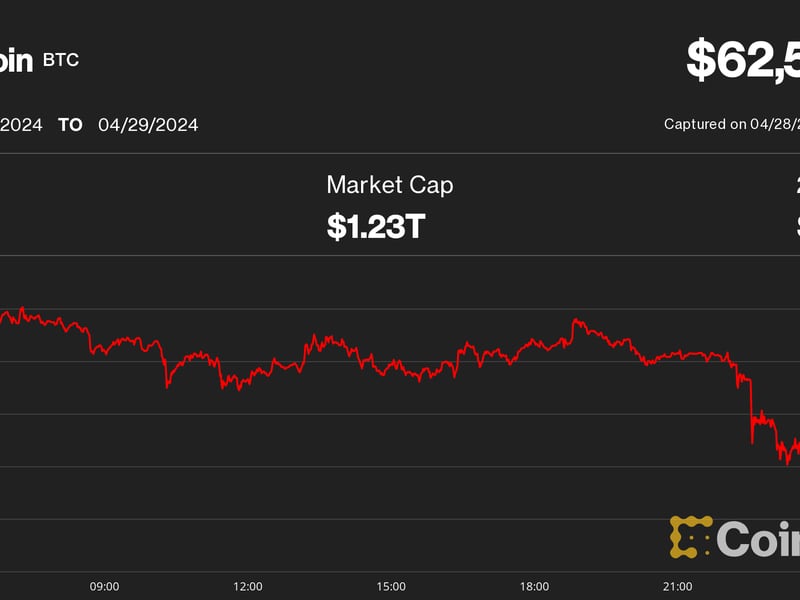How African Students Became Victims of FTX’s Collapse
“There were people who, because of their reputation, their friends and family trusted them. And now, after FTX collapsed, their reputation went,” a former Student Ambassador for FTX, in Nigeria, told CoinDesk several months ago.
This student is referring to a program run by FTX – the fallen crypto empire led by Sam Bankman-Fried – to promote the company in Africa, working through a network of student ambassadors who recruited their friends and family as customers to the trading platform. After FTX collapsed, the ambassadors were blamed by the people they recruited, in some cases even fearing for their personal safety as a result.
Like Binance and KuCoin, FTX Africa wanted to grow its user base in markets with abundant tech-focused youth populations. The program, which ran for about two years, targeted university students, encouraging them to apply to become “Brand Ambassadors” for FTX and host meetup events on their campuses.
The ambassadors received payment in return for their work. “Most signed up but had no good knowledge of trading,” said one person familiar with FTX’s Ugandan student program, referring to how the students know enough about crypto to know they could rich but not enough to know they might lose plenty of money as well.
CoinDesk has viewed and verified a copy of the FTX contract, which says the students would receive 30% of transaction fees paid by people they referred to FTX plus an additional $500 per month based on performance.
When FTX collapsed spectacularly last November, following CoinDesk reporting, people who had been brought to the exchange through ambassadors lost access to funds, some being life savings.
“I got a call from one of the ambassadors I worked with,” said the student CoinDesk interviewed. “He was crying because his referred users had invested 20 million naira because of him. Not just his own funds. People were just thinking they could save money on FTX and earn.”
At today’s Naira-dollar exchange rate, 20 million naira is about $26,000.
It is unclear how many university students participated in the ambassador program, but the official FTX Africa Telegram group, where students, ambassadors, and investors communicated with each other has more than 10,000 members. The channel has been closed to new messages for several months.
At the time of the interview, the student ambassador we spoke to had gone to ground, fearing revenge from community members who put funds on FTX because of him.
“This particular ambassador has been off the radar for five months … because people are looking for their money. People don’t want to understand that this particular exchange went down. What they understand is that they actually came to this exchange because of the ambassador. They say ‘you preached it, you were talking about it in every way.’”
The source says that ,in some instances, former ambassadors have been threatened physically by those they referred to the exchange. “They say we want to know where our money is. I’m going to kill you. If you don’t give me my money, I’m going to look for you, I’m going to hunt you.”
The source explained that many of the ambassadors who received this type of potentially violent backlash were based in the eastern region of Nigeria, a more rural part of the country where FTX saw potential beyond university students.
This market was “untouched,” the former ambassador said, “most of these people don’t go to school .. they started hosting events in states… not just targeting students now.” Ambassadors in these areas were not just promoting the brand to their academic peers, but to the broader populations where they were based, and they took the fall when the exchange declared bankruptcy.
The student program became a “mainstay of crypto education at some top Nigerian universities,” said CoinDesk contributor Olumide Adesina. “FTX was making a lot of noise and in a matter of months, we learned that many Africans were leaving platforms for FTX,” the Nigeria team for Bitcoin exchange Paxful wrote prior to its own suspension.
The meetups were popular, the student CoinDesk spoke with said. “Everyone wanted to come,” this person said. It turned into a “meetup for crypto traders to come, learn, and connect.”
The Brand Ambassadors received $1 for every student who attended the meetups. Following the meetings, the students received a link to register their trading volumes. An algorithm built by FTX’s team then calculated how much the ambassadors should receive as their share.
Pius Okedinachi, FTX Africa’s former Education Lead and also a Brand Ambassador, told CoinDesk how universities were selected for sponsored events after a student affiliate applied to host one. “If we have good numbers, and it’s promising, and we’ll check the campus to check the involvement, we check what the ambassador is doing, then it can be passed across to the FTX main team not FTX Africa,” he explained.
Though the events were promoted as educational, they were aimed at signing up students to increase trading volumes. “There’s no way we would educate people and then not talk about our product which is FTX… For us, the campus was for building communities and then also driving user volume and user database,” Okendinachi said.
Our student source in Nigeria backed this up. “All this was to educate my community a bit more about what crypto is, not FTX exactly. But at the same time I was driving volumes and getting more people for FTX,” a former student ambassador told CoinDesk.
The process of becoming an FTX ambassador did not resemble that of a typical job application and was more focused on popularity and interest in crypto investing. “There was not too much activity of where is your CV, where have you worked before… the criteria for becoming a student ambassador was quite little and not strict,” according to the student.
The ambassador program was managed by Adebayo Juwon, FTX Africa’s Business Development Manager. In a 2021 interview, Juwon said “we have taken the time to vet, select & train students who are avid FTX users, converted them to FTX Campus Ambassadors and most importantly empowered them.”
“Primarily, the aim is to enable them to understand what these concepts and technology are all about, what can be learnt from them, their advantages and the job opportunities available in the space,” he told the Nigerian publication Business Day in 2002. Juwon has not responded to CoinDesk’s requests for comment.
:format(jpg)/cloudfront-us-east-1.images.arcpublishing.com/coindesk/YVAOAJPA7VGEREDLZJJUYCMK7M.png)
Nigeria has long struggled with inflation and monetary uncertainty. Many who heard of FTX either through ambassadors or the exchange’s robust marketing were keen to invest in crypto as a way to hedge against the devaluation of the Naira. FTX was “not only for crypto trading but also for converting local money into dollars, turning FTX into a de facto bank for locals,” said Olumide Adesina.
Okedinachi, FTX Africa’s former Education Lead, said using crypto exchanges to convert local currency to dollar-pegged stablecoins like USDT (tether) became popular because buying dollars on the black market could come at a $200 premium over the exchange rate. FTX was known for relatively low trading fees by contrast. “Due to the access of US dollars in Nigeria, a lot of people actually resolved to using crypto for payments of good services,” extending FTX’s reach and cryptocurrency adoption far beyond university students interested in a new technology, he stated.
FTX’s campus tour took in other African countries like South Africa and Ghana. That being said, Brindon Mwiine, a former student ambassador for FTX in Uganda, claimed that the most impacted universities were in Nigeria, where the student program was most established.“There’s been a lot of global exchanges and players targeting Africa because it’s clear that the emerging markets will be where a lot of the utility and user adoption will come from,” said Yele Bademosi, CEO of Nestcoin, a Nigerian crypto startup that used FTX as a custodian (Nestcoin also received funding from Alameda Research). Surveys show strong interest in crypto among Nigeria’s large youthful population.
With exchanges like Binance still running ambassadorships in African countries, students have become increasingly skeptical of the programs, following their experiences with FTX. “You cannot find Binance doing campus programs in US universities and campuses, but they know Africa is a place where you can do things, speak to some regulators, and get as many users as you want.” “People are no longer thinking about working for a big exchange anymore, they’re looking at how insured is this, and how much of my reputation am I putting on the line,” said the former FTX student ambassador.
Edited by Ben Schiller.









